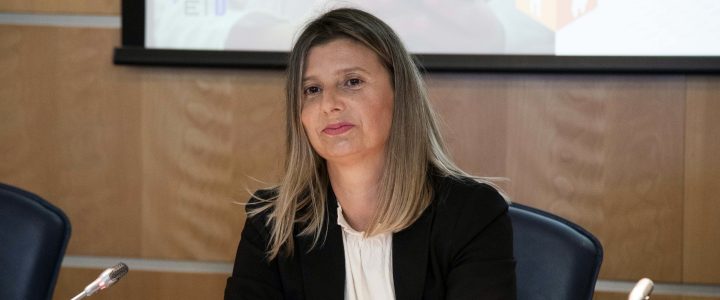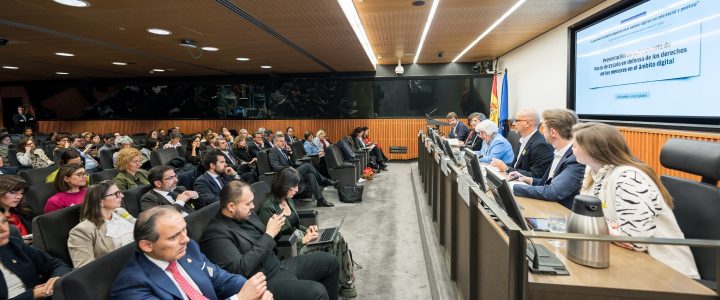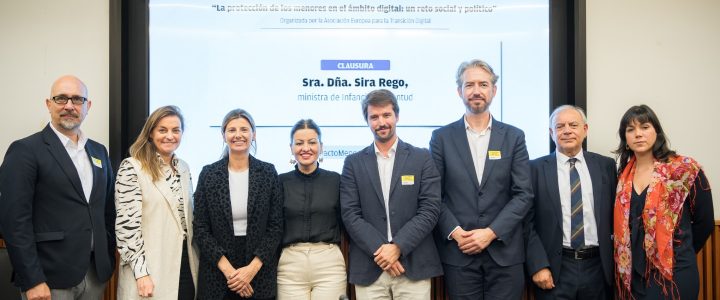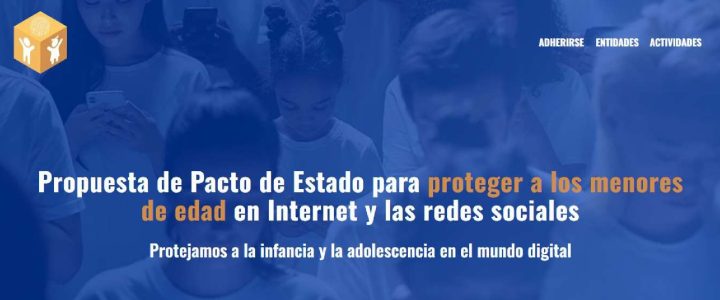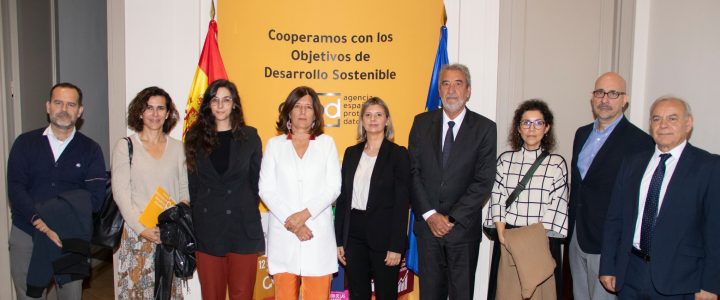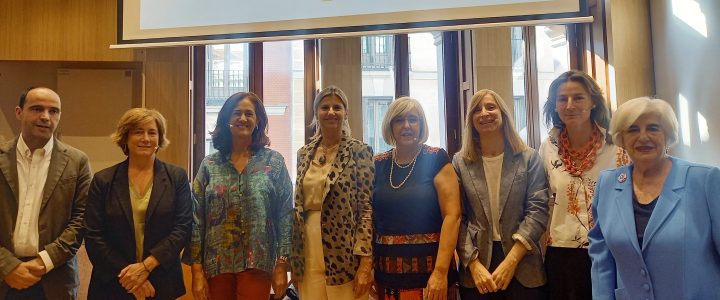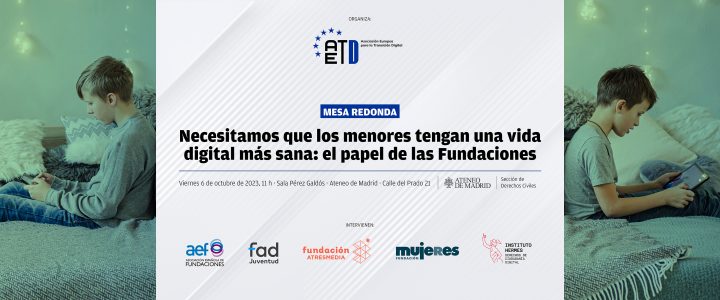De izquierda a derecha: Jorge Gutiérrez, director de Dale una vuelta; Sonsoles Bartolomé, directora de las líneas de ayuda de la Fundación Anar; Cristina Sanjuan, Técnico de Políticas de Infancia de Save The Children; Mar España, directora de la AEPD; Ana Caballero, vicepresidenta de la Asociación Europea para la Transición Digital; Eduardo Esteban, Fiscal de Sala de la Unidad de Menores de la Fiscalía General del Estado; Belén Andrade, especialista en Derechos Digitales de la Infancia de Unicef; Nacho Guadix, responsable de Educación y Derechos Digitales de la Infancia de Unicef, y Ricardo Rodríguez Contreras, presidente de la Asociación Europea para la Transición Digital.
La Propuesta de Pacto de Estado para defender a los menores en el ámbito digital cuenta con un nuevo apoyo institucional: la Fiscalía General del Estado (FGE). Su Unidad de Menores, dirigida por el Fiscal de Sala, Eduardo Esteban, se une a esta iniciativa de la sociedad civil, fruto del consenso de seis entidades -la Asociación Europea para la Transición Digital, promotora de la iniciativa, Save The Children, Fundación ANAR, iCMedia, Dale la Vuelta y Unicef- y que ya contaba con el respaldo de la Agencia Española de Protección de Datos (AEPD).
Leer más



